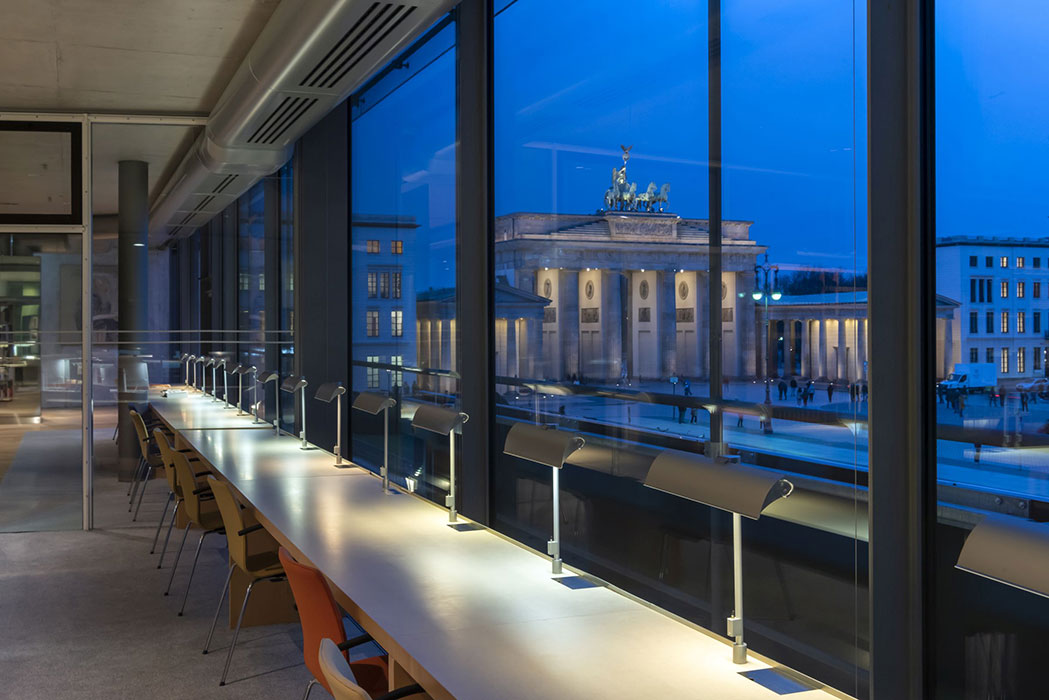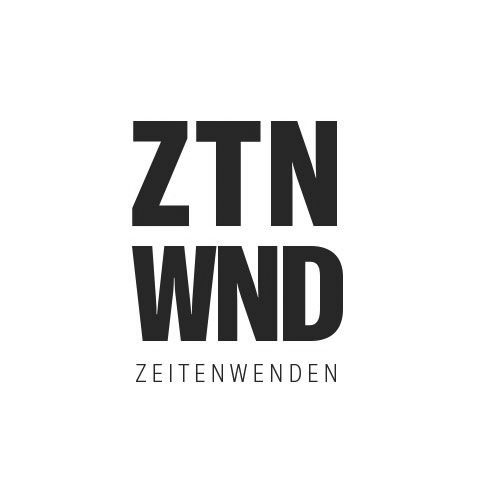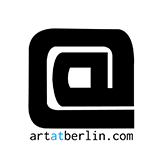This year, the Academy of Arts has elected 17 new members, 10 of whom are women, to its artists’ partnership. The elections took place at the 53rd general meeting of the Akademie der Künste (10./11.05) in Berlin. In the meantime, all newly elected members have accepted the election.
Image above: Academy of Arts on Pariser Platz, reading room, Photo: Erik-Jan Ouwerkerk
Candice Breitz, Katharina Fritsch, Nanne Meyer and Adrian Piper were elected to the Visual Arts Section. Annette Schmucki and Jennifer Walshe have been added to the Music Section. Ulrike Draesner, Thomas Hettche, Robert Menasse, Lothar Trolle and Cécile Wajsbrot are new members of the Literature Section. Herbert Fritsch and Thomas Ostermeier will in future be represented in the Performing Arts Section. Claudia von Alemann, Sławomir Idziak, Paul Plamper and Gundula Schulze Eldowy have joined the Film and Media Art Section. The Architecture Section has not proposed any new members this year.
The Academy now has a total of 428 members.
Short biographies of the new members
Claudia von Alemann, author, producer, director of documentaries and feature films
Studied art history and sociology at the FU Berlin and film at the Hochschule für Gestaltung Ulm. From 1968 to 1969 and from 1974 to 1980 she lived and worked in Paris. In 1973 she and Helke Sander organized the “1st International Women’s Film Festival” at the Kino Arsenal Berlin. 1982 Prize of the German Film Critics for her feature film The Journey to Lyon. Co-editor of the book Das nächste Jahrhundert wird uns gehört, Frauen und Utopie in Frankreich 1830 – 1840. From 1982 to 2006 Professor of Film at the FH Dortmund, visiting professorships in Cuba, Canada, USA and others. She has received numerous prizes and awards at international film festivals, her video game film Das Frauenzimmer has been included in numerous video art collections, including the MoMA, New York. She is a member of the European Film Academy, EFA. She has a daughter and lives with her husband, Cuban film director Fernando Pérez, in Cologne and Havana. Her documentary essay The Woman with the Camera – Portrait of the Photographer Abisag Tüllmann was nominated for the Hessian Film Award in 2016.
Candice Breitz, video artist
Born 1972 in Johannesburg (South Africa), lives in Berlin. Studied art and art history in South Africa and the USA and participated in the Whitney Independent Studio Program (NYC). Since 2007 Professor at the Hochschule für Bildende Künste in Braunschweig. Her moving image installations have been shown internationally. Breitz examines the dynamics with which an individual becomes himself in relation to a larger group, be it the immediate community one encounters in the family, or the real and imaginary communities that are shaped not only by questions of national affiliation, race, gender and religion, but also by the increasingly undeniable influence of mainstream media such as TV, cinema and other popular culture. More recently, her work has focused on the conditions under which empathy is generated, reflecting a medially saturated global culture in which a strong identification with fictional characters and celebrities runs parallel to widespread indifference to the plight of those confronted with real problems.
Ulrike Draesner, novelist, poet, essayist and translator
Born 1962 in Munich, lives in Berlin. Studied law, English, German and philosophy in Munich, Salamanca and Oxford. Translations from English and French, guest lecturers and poetry lecturers in Germany, Switzerland, England and the USA. Since April 2018 Professor of German Literature and Literary Writing at the German Literature Institute in Leipzig. Publications (selection): memory loops. Poems (1995), blueprint. Novel (1998), Hot Dogs. Stories (2004), games. Novel (2005), Preference. Roman (2010), Seven Jumps from the Edge of the World. Novel (2014), subsong. Poems (2014), Grammar of the Ghosts. Frankfurt Poetics Lectures (2018), A Woman Getting Older. A departure (2018). Awards (selection): 2010 Literaturpreis Solothurn, 2013 Roswithapreis, 2016 orphil-Preis für Lyrik and the Nicolas-Born-Preis.
Gundula Schulze Eldowy, Photographer
Born in Erfurt in 1954, lives in Berlin and Peru. After the vocational school for advertising and design in Berlin-Schöneweide, from 1979 to 1984 he studied photography at the Leipzig Academy of Visual Arts with Horst Thorau. She is a member of the Verband Bildender Künstler and is admitted to freelance work. From 1977 to 1990 she created black-and-white cycles such as Berlin. In a dog night, Tamerlan, Der Wind fills with water. 1990 Scholarship of the Kunstring Folkwang, Essen. Travels to Italy, Egypt, Japan followed – and at the invitation of Robert Frank to the USA. Exhibitions (among others): 1991 Neue Nationalgalerie, 1992 Museum of Modern Art, 1992 Kunst- Werke Berlin, together with Nan Goldin. Prizes and Scholarships: 1996 The 12th Prize for Overseas Photographers of Higashikawa Photo Fiesta, 2000 Art Scholarship of the Konrad-Adenauer-Stiftung, Bonn, as well as the New Zealand Photography Award M.I.L.K. 2001 she travels to Bolivia and Peru, the latter becoming her second home. There she is co-founder of the Casa de Arte. In addition to photography, Schulze Eldowy also works as a writer and poet. She creates sound collages and videos.
Herbert Fritsch, actor, director, stage designer, media artist
Born 1951 in Augsburg, lives in Berlin. Studied acting at the Otto-Falckenberg-Schule, Munich. He then worked at the Residenztheater Munich, Düsseldorfer Schauspielhaus, Theater Basel, Staatstheater Stuttgart, Schauspielhaus Hamburg, Schauspielhaus Bochum and with directors such as David Mouchtar-Samorai, Werner Schroeter and Robert Wilson. From 1993 to 2007 he was a member of the ensemble at the Volksbühne am Rosa-Luxemburg-Platz, one of its most influential protagonists, especially in collaboration with Frank Castorf, further works with Dimiter Gotscheff and Christoph Schlingensief, among others, and since 2012 also as a director. Since 2007 freelance director and stage designer at the same time, productions and own play developments, among others at the Schaubühne Berlin, Schauspielhaus Bochum, Schauspiel- und Opernhaus Zürich, Burgtheater Wien. Several invitations to the Theatertreffen, numerous awards, 2017 Berliner Theaterpreis. Since the 1980s continuous artistic film and media work, including the intermedial film, internet and theatre project Hamlet_X (2000-2008). In 2009, the International Short Film Festival Oberhausen presented a retrospective of his complete cinematic oeuvre.
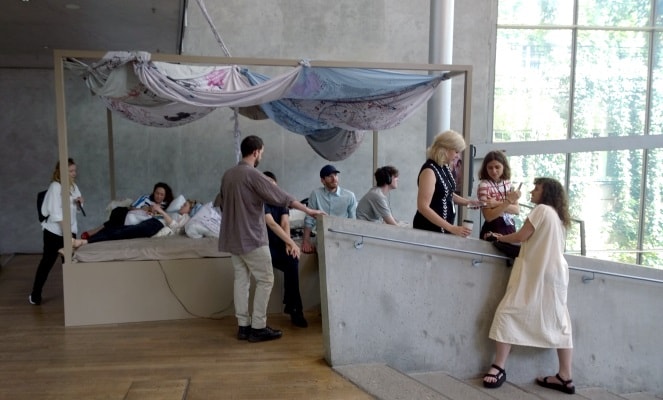
Katharina Fritsch, artist
Born 1956 in Essen, lives and works in Düsseldorf and Wuppertal. From 1979 to 1984 he studied at the Kunstakademie Düsseldorf. Professor of sculpture from 2001 to 2010 at the Kunstakademie Münster, from 2010 to 2019 at the Kunstakademie Düsseldorf. Solo exhibitions and major presentations include 2016 Folkwang Museum, Essen; 2011 to 2013 MoMA, New York; 2012 Art Institute of Chicago; 2011 ILLUMInations, 54. Biennale di Venezia; 2009/10 Kunsthaus Zürich and Deichtorhallen Hamburg; 2002 Kunstsammlung Nordrhein-Westfalen K21, Düsseldorf; 2001 Tate Modern, London; 1999 dAPERTutto, Biennale di Venezia; 1997 Museum für Gegenwartskunst, Basel; 1996 MoMA, San Francisco; 1993 DIA Center for the Arts, New York; 1989 Portikus, Frankfurt a. M.; 1988 ICA, London and Kunsthalle Basel; 1987 Kaiser Wilhelm Museum, Krefeld. From 2013 to 2015, the artist performed at the Fourth Plinth on London’s Trafalgar Square, in 1995 the German Pavilion at the 46th Biennale di Venezia (with Martin Honert and Thomas Ruff).
Thomas Hettche, novelist and essayist
Born 1964 in Treis on the edge of the Vogelsberg, lives as a freelance writer in Berlin and Switzerland. Studied German language and literature, philosophy and film in Frankfurt am Main. Since 2018 Thomas Hettche has been an honorary professor at the Institute for Philosophy, History of Literature, Science and Technology at the Technical University of Berlin. Publications (selection): Ludwig must die. Novel (1989), incubations. Narratives (1992), NOX. Novel (1995), The Case of Arbogast. Crime novel (2001), What we are made of. Roman (2006), The Love of the Fathers. Roman (2010), Totenberg. Essay (2012), Peacock Island. Roman (2014), Our Empty Hearts. On literature (2017). Awards (selection): 1990 Rauriser Literature Prize, 2014 Wilhelm Raabe Literature Prize and Bavarian Book Prize, 2016 Wolfgang Koeppen Prize, 2018 Hermann Hesse Literature Prize.
Sławomir Idziak, cameraman
Born 1945 in Katowice, Poland. In the 1960s he studied camera direction at the film school of Łódź He then began to work in television. From the mid-1970s he worked with directors Andrzej Wajda, Krzysztof Zanussi and Krzysztof Kieślowski and contributed to the international reputation of Polish cinema. His image design is regarded as experimental and expressive as in Three Colors: Blau (1993) and A Short Film about Killing (1988). Since 1988 he has worked regularly in Germany, among others with Hark Bohm (Der Fall Bachmeier, 1984, Yasemin, 1988) and Detlev Buck (Männerpension, 1995, Die Vermessung der Welt, 2012). In the USA, he directs the camera for Andrew Niccols (Gattaca, 1997), Ridley Scott (Black Hawk Down, 2001) and David Yates (Harry Potter and the Order of the Phoenix, 2007). Idziak taught at the Academy of Media Arts Cologne and the Film University Babelsberg Konrad Wolf.
Robert Menasse, novelist and essayist
Born 1954 in Vienna. Studied German language and literature, philosophy and political science in Vienna, Salzburg and Messina. Doctorate in 1980 with a thesis on the “Type of the outsider in the literary business”. He taught at the University of São Paulo and has lived in Vienna since his return. Publications (selection): Sensual Certainty. Roman (1988), The Expulsion from Hell. Roman (2001), Die Zerstörung der Welt als Wille und Vorstellung – Frankfurter Poetikvorlesungen (2006), Ich kann jeder sagen: Erzählungen vom Ende der Nachkriegsordnung (2009), Der Europäische Landbote, Die Wut der Bürger und der Friede Europas (2012), Heimat ist die schönste Utopie. Talking (us) about Europe (2014), The Capital, Roman (2017). Awards (selection): 1999 Grimmelshausen Prize, 2002 Joseph Breitbach Prize and Lion Feuchtwanger Prize, 2013 Heinrich Mann Prize, 2014 Max Frisch Prize, 2017 German Book Prize, 2019 Carl Zuckmayer Medal.
Nanne Meyer, draughtswoman
Born 1953 in Hamburg, lives in Berlin. Studied at the Academy of Fine Arts in Hamburg. At the centre of her work is drawing, understood as a means of tracking down one’s own perception and setting associative thinking in motion. Her work focuses on the relationships between the language of words and images, processes of becoming and passing, and the exploration of the medium itself. Her works include drawings, collages and artist’s books. Nanne Meyer has had solo exhibitions at the Städtische Galerie im Lenbachhaus in Munich, the Kunsthalle Bremen, the Hamburger Kunsthalle, the Museum Goch, the Kupferstichkabinett, Staatliche Museen zu Berlin and the Max Liebermann Haus in Berlin. A DAAD scholarship took her to the Saint Martin’s School of Art in London (1982/83). In addition to a scholarship from the Villa Massimo in Rome (1986/87), she received the Künstlerinnenpreis NRW for Drawing (main prize) in 2013 and the Hannah Höch Prize of the State of Berlin in 2014. From 1994 to 2016 she taught as professor for drawing and illustration at the Weißensee Kunsthochschule Berlin.
Thomas Ostermeier, director, theatre director
Born 1968 in Soltau, raised in Landshut. From 1992 to 1996 he studied directing at the Hochschule für Schauspielkunst Ernst Busch and assisted Manfred Karge. From 1996 to 1999 artistic director of the Baracke at the Deutsches Theater Berlin, invitations to the Theatertreffen of his first performances of Mark Ravenhill and David Harrower. 1998 Baracke awarded the title “Theater of the Year”. Since 1999 member of the artistic direction of the Schaubühne, since then 40 productions, guest productions at the Münchner Kammerspiele, Edinburgh Festival, Comédie Française, since 2004 Artiste Associé des Festivals d’Avignon. His productions have been invited several times to the Theatertreffen, most recently 2018 return to Reims after Didier Eribon, and have received German and international prizes, including the Friedrich Luft Prize, Nestroy Prize, Grand Prix de la Critique, Prix Molière, Premio della Critica Teatrale, Rome, FADJR Festival Prize, Tehran. From 2010 to 2018 Thomas Ostermeier was President of the Franco-German Cultural Council, and in 2016 he was awarded an honorary doctorate from the University of Kent for his services to European theatre. Further honours include the 2011 Golden Lion of the Venice Biennale for his life’s work and his appointment as Commandeur des Arts et des Lettres in 2015.
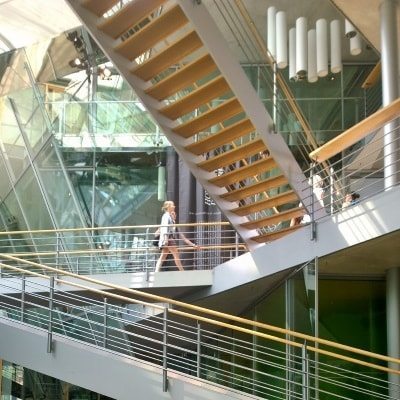
Adrian Piper, concept artist and analytical philosopher
Born 1948 in New York City, she has lived and worked in Berlin since 2005, where she founded the Adrian Piper Research Archive Foundation Berlin. Her artistic oeuvre, including works on paper, videos, multimedia installations, paintings, sound works, photographic and text-based graphics, can be found at the Museum of Modern Art and the Metropolitan Museum of Art in New York, the Museum of Contemporary Art in Los Angeles, the Centre Pompidou in Paris, and the Generali Foundation in Vienna. She has received fellowships from the Getty Research Institute in Los Angeles and the Wissenschaftskolleg zu Berlin, the Skowheagan Medal for Sculptural Installation, and the New York Dance & Performance Award. In 2015 she was awarded the Golden Lion at the Venice Biennale for The Probable Trust Registry: The Rules of the Game #1-3. After her art studies, Adrian Piper studied philosophy. Research on Kant and Hegel took her to Germany, to the University of Heidelberg. In 1981 she earned her doctorate at Harvard University with John Rawls with a thesis on rationality. Piper has taught at several U.S. universities and her numerous philosophical publications focus on metaethics, Immanuel Kant, and the history of ethics.
Paul Plamper, author and director for radio play and theatre
Born 1972 in Ulm, from 1993 to 1995 studied theatre science and German language and literature at the Humboldt University in Berlin. At the same time he started as assistant director at the Berliner Ensemble and the Volksbühne. In 1998 he staged the play Der Auftrag von Heiner Müller in Istanbul. Since 1999 he has worked regularly as a radio play author and director. Many of his works have been awarded prizes, such as TOP HIT leicht gemacht (2002) with the Prix Europa, Ruhe 1 (2009) with the Radio Play Prize of the War Blind, or Der Kauf (2013) with the German Radio Play Prize of the ARD. Again and again he looks for possibilities of staging the radio play in public space, for example in Der Kauf als Parcours on brownfields in Cologne and Munich or Dienstbare Geister, whose two acts were presented in parallel in different rooms at the Ruhrtriennale 2017. Paul Plamper is the initiator and artistic director of the platform Hörspielpark.de, which serves the distribution of radio plays.
Annette Schmucki, composer
Born 1968 in Zurich, she studied composition with Cornelius Schwehr in Winterthur, followed by postgraduate studies in composition (Master) with Mathias Spahlinger in Freiburg i. Br. She has received numerous awards for her artistic work. Her works have been commissioned and premiered by renowned ensembles and festivals such as Archipel, ascolta, Musikfestival Bern, Collegium Novum Zürich, Ensemble Contrechamps, Ensemble Lemniscate, Lucerne Festival, Lucerner Theater, Maulwerker, ensemble proton bern, ensemble recherche, Festival Rümlingen, Staatsoper Berlin, Tage für Neue Musik Zürich, usinesonore, Neue Vocalsolisten Stuttgart, WDR, Wien Modern, Wittener Tage für neue Kammermusik. In addition to her solo work, she has been a member of the artist duo ‘blablabor’ since 2000, together with the radio artist Reto Friedmann. Since 2010 she plays with the musician Petra Ronner in the sampler combo ‘band’ and invents the life of the ‘seven pig sisters’ with the visual artist Maria Gasche.
Lothar Trolle, dramatist, narrator, poet, radio play author and translator
Born 1944 in Brücken near Sangerhausen (Harz), lives in Berlin. After graduating from high school and training as a commercial clerk, he studied at the Humboldt University in Berlin. From 1983 to 1987 co-editor of the literary underground newspaper MIKADO. 1991 House author at Schauspiel Frankfurt, from 1994 to 1999 at Berliner Ensemble. Publications (selection): Hermes in der Stadt. Pieces (1991), The Class Window. Dramolette, Prosa and others (1991), Die 81 Minuten des Fräulein A. (Anna’s Second Creation of the World) (1995), Das Prinzenmärchen (1996), Die Baugrube (1996), Nach dem Besuch eines Toten (1997), Berlin fin du monde (1998), Nach der Sintflut. Collected works (2007). Awards (selection): 1978 and 1991 Radio Play Prize by Terre des Hommes, 1998 Radio Play Prize by the Academy of Arts, 2007 Stadtschreiber zu Rheinsberg.
Jennifer Walshe, composer and performer
Born 1974 in Dublin, Ireland, studied composition with John Maxwell Geddes at the Royal Scottish Academy of Music and Drama, Kevin Volans in Dublin and received his doctorate in 2002 at Northwestern University, Chicago with Amnon Wolman and Michael Pisaro. Jennifer Walshes works have been performed and broadcast worldwide. She has received scholarships and awards from the Foundation for Contemporary Arts, New York, the DAAD Berliner Künstlerprogramm, the International Music Institute Darmstadt and the Akademie Schloss Solitude. Recent projects include Aisteach, a fictional history of avant-garde music in Ireland; EVERYTHING IS IMPORTANT, a work commissioned by the Arditti Quartet for voice, string quartet and film; and TIME TIME TIME TIME, an opera written in collaboration with philosopher Timothy Morton and critically acclaimed. Walshe is Professor of Performance at the Hochschule für Musik und Darstellende Kunst, Stuttgart.
Cécile Wajsbrot, novelist, essayist, translator
Born 1954 in Paris, lives in Paris and Berlin. After studying Romance and Comparative Literature at the Sorbonne in Paris, she first worked as a French teacher and later as a literary editor. Freelance writer and translator since 1989. Publications in German (selection): Mann und Frau, den Mond betrachtend (2003), Im Schatten der Tage (2004), Der Verrat (2006), Aus der Nacht (2008), Nocturnes, Geschichten vom Meer, Erzählungen (2009), Die Köpfe der Hydra (2012), Für die Literatur. Essay (2013), Eclipse (2016). Awards (selection): 2014 Eugen Helmlé Translation Prize, 2016 Prix de l´Académie de Berlin.


